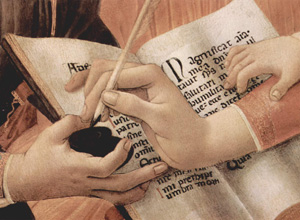« Prev Next »

Technical Writing and Editing

First, ask yourself whether you love scientific writing or love scientific editing. Some people prefer the creativity that comes with writing, telling a story and figuring out the best way to let it unfold. Others love the puzzle-solving aspects of editing that makes a story or set of stories fit together well. It is important to know which you prefer. A person who loves writing may not be happy in an editorial position, and vice versa.
Writing
If you love telling stories, you might be interested in a career in science journalism, freelance science writing, or even fundraising for research. Each of these professions involves translating research into a story that the audience can understand. The audience might be, for example, a reader of a technology trade magazine, an interested lay person, or a foundation that your institution is soliciting for funding. A science journalist or fundraising position affiliated with a company or institution will be more secure than a freelance position. I know an excellent freelance writer who did very well in the technology boom of the 1990s, but who has struggled since then to find consistent work. On the other hand, she loves the freedom that she has in her work.
The changes in journalism over the past several years as a result of the Internet is affecting science writing as well. Some jobs, particularly those for the science pages of newspapers, have disappeared; on the other hand, there have been new jobs created through the rise of websites devoted exclusively to reporting research and business developments, such as Xconomy.com. It will be interesting to see how this plays out over the next several years.
With an ever-increasing need for more funds to do research, writing proposals to foundations or grant writing for federal funds tends to be a very stable and rewarding profession. Telling a story about a scientist's research in a way that captures the attention of a foundation can also be a creative endeavor.
Editing and Technical Writing
Do you enjoy reading what someone else has written and figuring out how to say it better? Editors often love to make writing more clear and concise, or make suggestions for how to make a story stronger or more interesting. If editing is your passion, there are several careers that can match your interests. An increasing number of research groups and departments are employing scientific editors to help them be more successful, because good editing of scientific manuscripts and grants can help a scientist get the manuscript accepted for publication, or increase the chances of successfully obtaining funds.
Some professions combine both writing and editing. Editors at scientific journals or technical magazines, for example, frequently edit submissions and write their own reviews, analyses, and features.

Within this Subject (45)




















